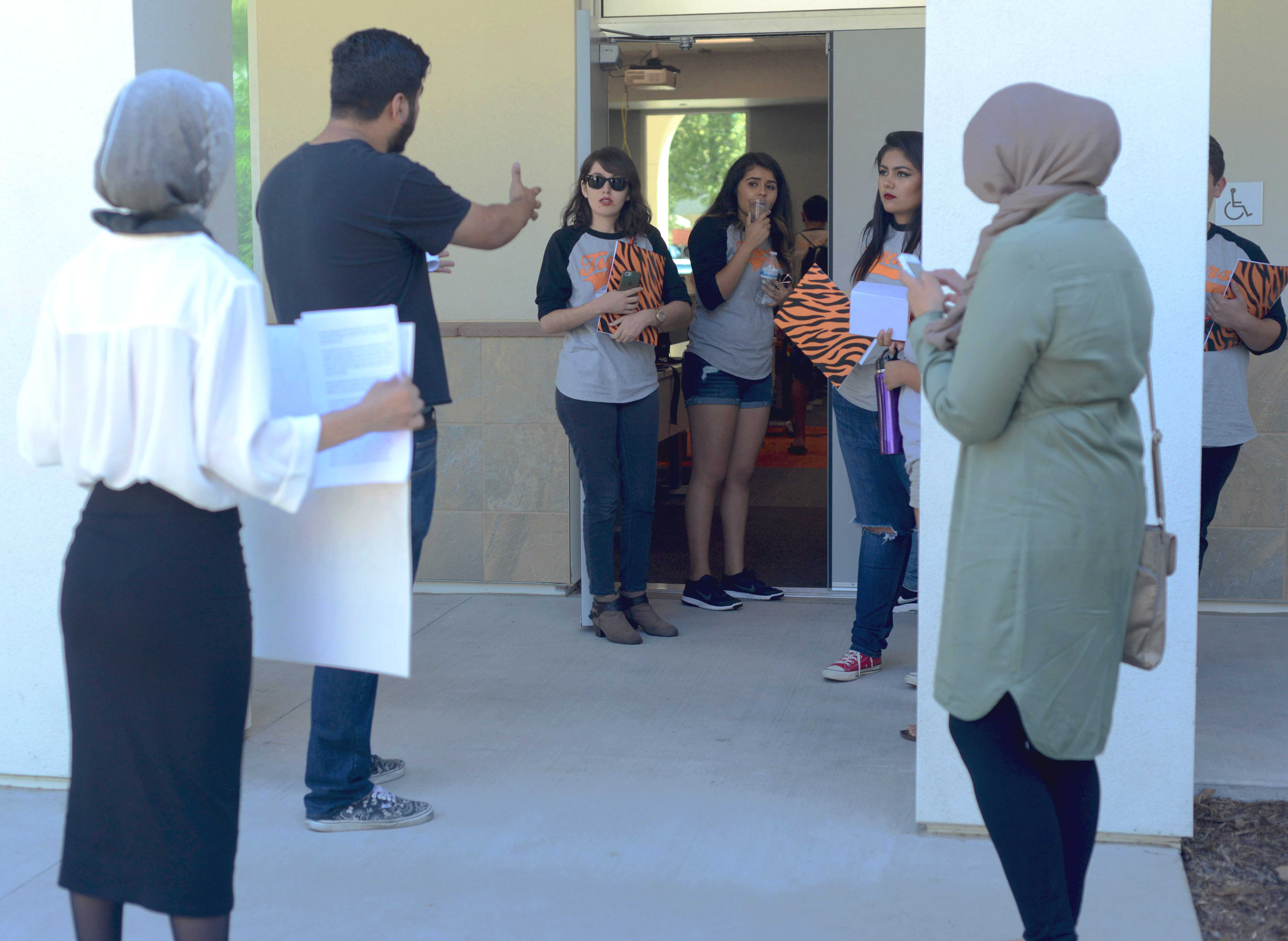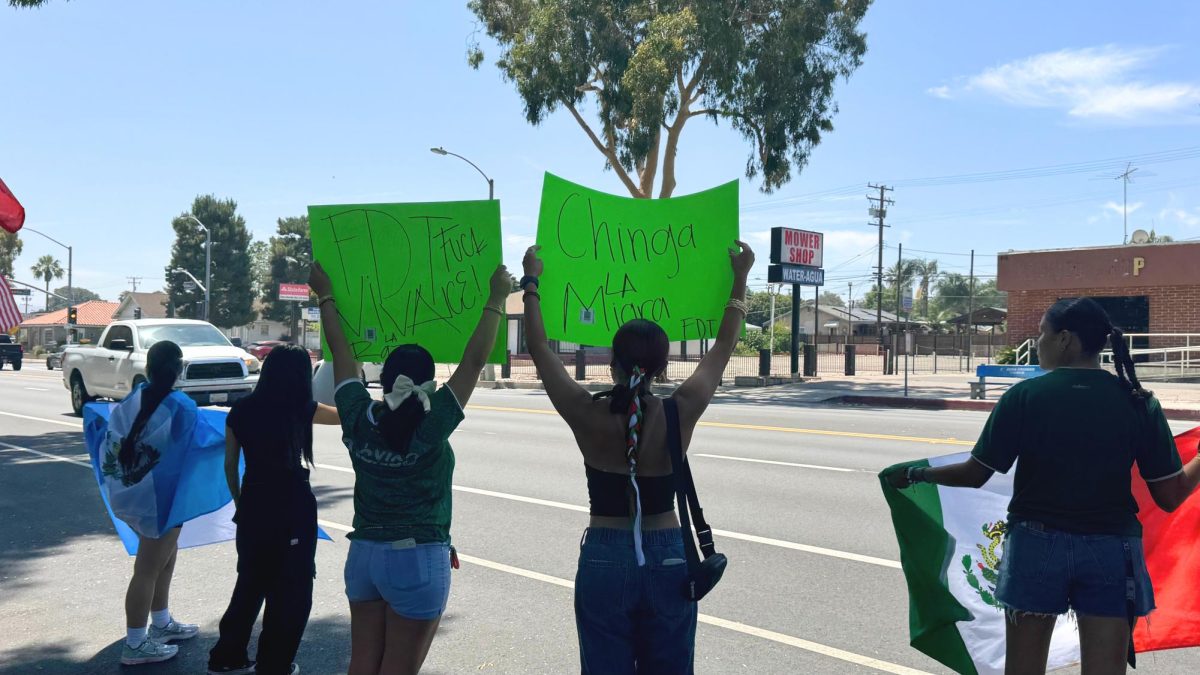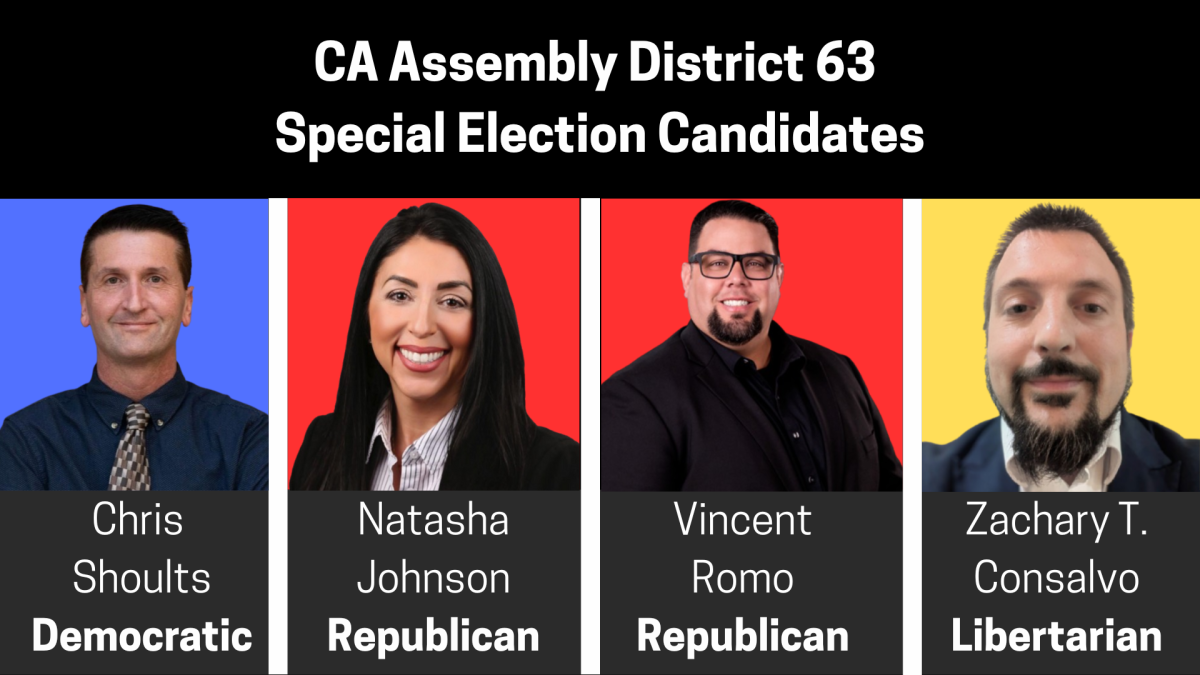By Crystal Olmedo and Laura M. Tapia

An open meetings act violation may have occurred when protesters and press were denied access to an Aug. 16 Associated Students of Riverside Community College District retreat.
ASRCCD met to receive training on disaster preparedness, sexual harassment and assault awareness and emotional IQ in room 140 of the Charles A. Kane Building at Riverside City College.
Lawyers from the California Newspaper Publishers Association and the First Amendment Coalition stated via email that the groups were in violation of the Ralph M. Brown Act.
“As a general matter, any time the majority of the members of such an association, such as a student government board, convene in a particular place, they must abide by the Brown Act’s various requirements,” Lelia Knox of the FAC said. “Including the requirement that such meetings must be open to the public.
“It would seem a retreat would be a ‘meeting’ to which the agenda, notice and public attendance and comment requirements of the Brown Act would apply,” she continued. “Particularly if the board is hearing information on topics that come within its subject matter jurisdiction.”
RCC student Natalie Lopez shared her thoughts on the subject matter of the retreat.
“I would have found it beneficial,” Lopez said. “Most students don’t know how to handle a situation like that. So it would be helpful to know so you could help others in a situation like that.”
Nikki Moore, legal counsel for the CNPA echoed what Knox said and added that the act provides the notice procedure that should be followed when there is a meeting.
Although an agenda was not posted prior to the meeting.
Knox did note that the act sets forth certain types of gatherings that are not considered meetings.
Those gatherings include: the attendance of a majority of the members at a conference that is otherwise open to the public, or at a public meeting organized by someone else, or at any open meeting of another agency, or at a purely social or ceremonial occasion as long as at such occasion the members do not discuss agency business.
“But a retreat is not per se within one of these exemptions, particularly where the retreat was organized specifically for the members of a particular legislative body,” she said. “The retreat is a purposeful effort to provide the board with the opportunity to hear and consider information related to matters that come before it, such gathering would seem to fall directly in the definition of ‘meeting.”
Under the direction by the administration the retreat was to remain invite only, according to student activities coordinator, Deborah Hall.
Hall declined to comment when asked again Sept. 7 about the direction given by administration.
“It was not a legislative meeting,” she said. “That ASRCCD retreat was for invited guests only.”
RCC President Wolde-Ab Isaac said on Sept. 7 that he gave no specific direction to not allow student media to attend the event, but said he told them to allow invited parties only.
“No one asked me about Viewpoints,” Isaac said. “The only thing was they were expecting some kind of demonstration. People from outside coming to (make) a scene, and I said this is a retreat.
“Maybe they misunderstood the directive I gave them,” Isaac added.
A small group of people stood outside the room holding signs protesting District Compliance Officer Lorraine Jones who was presenting the sexual harassment and assault awareness portion of the training.
One of the protesters and current UC Berkeley student Aarefah Mosavi, has a pending lawsuit against Jones for allegedly mishandling a rape claim at Mt. SAC.
Isaac explained his reasoning for recommending that protestors not be admitted to the meeting.
“I said ‘this an organized retreat for yourselves,’” he said. “I said ‘I’m fine with it, it’s a training retreat, you selected the people who are your speakers to come and speak.’ Nobody twisted their arms to select them … ‘You invited these people. You don’t invite people and disrespect them,’ this isn’t the culture of RCC.
“Was it wise to invite those specific speakers?” he continued. “‘It’s your decision not mine.’”
Knox pointed out that the Brown Act requires that the body must first attempt to restore order by removing only those individuals responsible for the disruption before excluding all members of the public.
According to Knox, if that fails, then the public may be excluded. However, the act provides members of the press who are not involved in the disturbance must be permitted to remain.
Neither the protesters nor student media were permitted to begin with “which does not follow procedure set forth by the Brown Act,” Knox said in an email to Viewpoints.
RCC student Nick Viste said he understood why they would want to restrict the meeting to certain people for fear it may get out of hand and that they may have had their reasons to keeping it at invite only.
“You can kind of argue both sides,” he said. “But at the same time if it is something that is important to the public, that’s important to all the students, then that should be open to all the students.”
Nigel Item, RCC student body president, said Oct. 4 that although he was given direction by RCC President Isaac that he didn’t know of any policies in place that would prohibit entrance of third-parties.
“To my understanding he said ‘these protesters are not students at RCC,’ or at least some of them were not,” Item said. “(Isaac) said ‘Nigel I just want to let you know that there is policy within the school that if a third party is coming on campus they’re not allowed to enter any rooms without my approval ahead of time’ … at that point he said I trust that you will be able to handle the situation.
“I was not aware that third parties were not allowed into rooms without approval,” he said. “That could’ve been administration policies that were beyond my jurisdiction that I may not be aware of. I didn’t have an opportunity to ask him where that policy comes from. I don’t know if that’s a district policy, a school policy or if it is even stated anywhere, I will be honest, I am not familiar with that policy.”
Item elaborated on his decision restrict public access to the retreat.
“We had to ensure that they do not enter,” he said. “Because in my position although I’m student body president, the college president essentially tasks me with something and me protecting myself also and I apologize if it was the wrong decision to do so, but I followed his direction only because I was completely blind to that policy.”
Item said that he would look into the policies and correct any mistakes made.
“If we find that we were in the wrong, I don’t mind stating that we were in the wrong,” Item said. “And I will look to how we can fix that issue and make sure that in the future it won’t be done again.”







